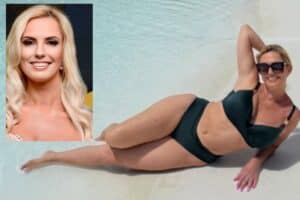A grim series of photographs titled "Kissing Death" by Iraq's Ali Arkady on the bloody conflict in his country won the prestigious Bayeux-Calvados photo awards for war correspondents on Saturday.
The brutal pictures tracked Iraqi special forces in battles in Tikrit, Fallujah and Mosul and included horrendous images of torture and violence. They were published by the VII photo agency.
“They are the most sinister, upsetting pictures I have seen in my entire life,” veteran war correspondent Jeremy Bowen, the head of the jury, told AFP.
“The pictures were really, really strong, they were evil,” he said.
“You could see evil… I could feel it in my stomach, the dark side of the world,” said Bowen, a BBC journalist whose career spans three decades.
However, photographer Arkady’s reporting had triggered a debate among the 50 journalists on the prize jury.
The 34-year-old had followed a division of Iraqi soldiers to denouce their acts of torture but he admitted to having participated twice in these “war crimes” out of fear of reprisals.
“In the end the service he did by taking those pictures is more powerful than the fact he made some mistakes,” Bowen said.
Arkady confirmed to AFP that he did participate in two acts of torture, of which he has said in other interviews he was “not proud”.
When accepting his award at Bayeux the photographer said he wanted “the Iraqi government to realise that these soldiers committed war crimes. I want to stop that, but unfortunately, it continues”.
For reportage, the French journalist Samuel Forey won a prize for tracking five days in the battle for Mosul, Iraq’s second city, which was recaptured from the Islamic State jihadists in July.
His accounts were published in France’s Le Figaro newspaper.
Radio journalist Gwendoline Debono from Europe 1 was honoured for her work on the entry of Iraqi troops into Mosul.
In television, a 26-year-old woman called Waad Al-Kateab commissioned by Britain’s Channel 4 to make a film about life inside the Syrian city of Aleppo, won a prize for her work on the last hospital held by rebels.
Olivier Sarbil also won a TV prize for his film about the battle for Mosul, which was aired by Channel 4.
About 330 works had been entered for the prizes, of which some 50 were short-listed. The prize money ranges from 3,000 to 5,000 euros.
Support Local Journalism
Add The Citizen as a Preferred Source on Google and follow us on Google News to see more of our trusted reporting in Google News and Top Stories.








